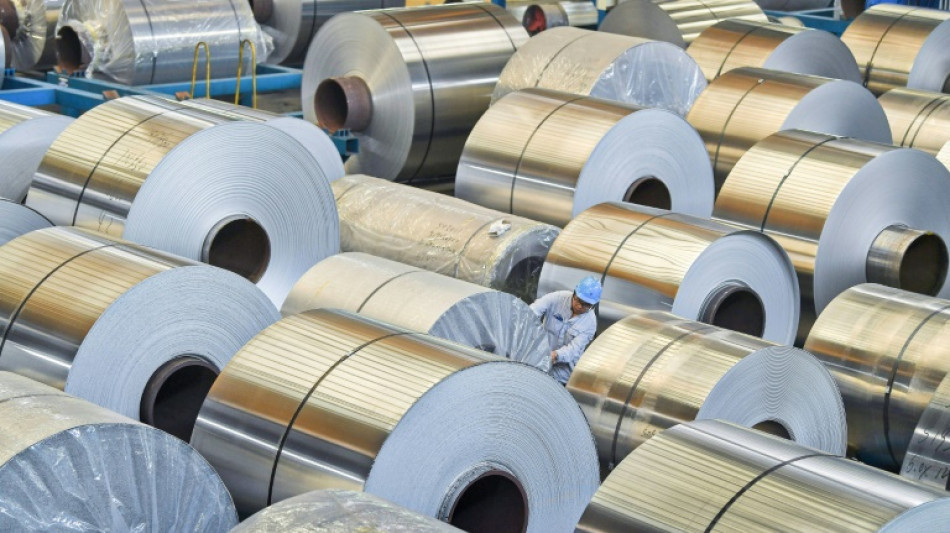
-
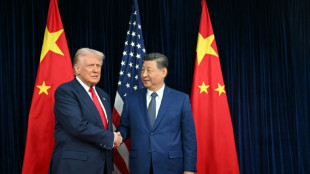 Asia markets fluctuate as investors mull Trump-Xi talks
Asia markets fluctuate as investors mull Trump-Xi talks
-
Trump, Xi ease fight on tariffs, rare earths
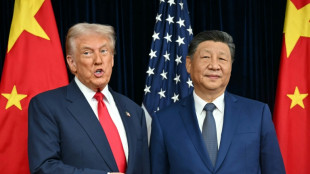
-
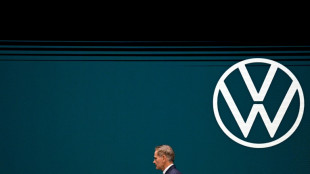 Volkswagen posts 1-billion-euro loss on tariffs, Porsche woes
Volkswagen posts 1-billion-euro loss on tariffs, Porsche woes
-
'Fight fire with fire': California mulls skewing electoral map

-
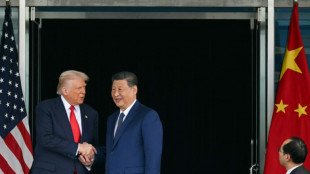 Fentanyl, beans and Ukraine: Trump hails 'success' in talks with Xi
Fentanyl, beans and Ukraine: Trump hails 'success' in talks with Xi
-
'Nowhere to sleep': Melissa upends life for Jamaicans
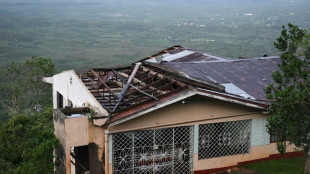
-
 Irish octogenarian enjoys new lease on life making harps
Irish octogenarian enjoys new lease on life making harps
-
Tanzania blackout after election chaos, deaths feared
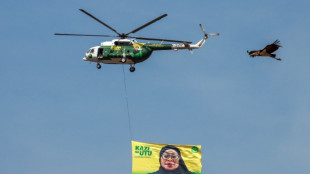
-
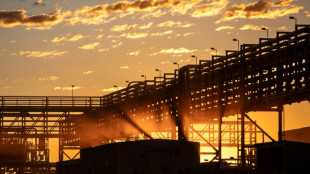 G7 meets on countering China's critical mineral dominance
G7 meets on countering China's critical mineral dominance
-
Trump hails tariff, rare earth deal with Xi
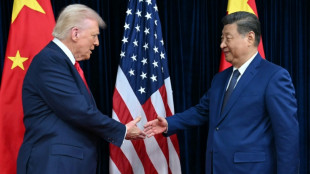
-
 Court rules against K-pop group NewJeans in label dispute
Court rules against K-pop group NewJeans in label dispute
-
India's Iyer says 'getting better by the day' after lacerated spleen

-
 Yesavage fairytale carries Blue Jays to World Series brink
Yesavage fairytale carries Blue Jays to World Series brink
-
Bank of Japan keeps interest rates unchanged

-
 Impoverished Filipinos forge a life among the tombstones
Impoverished Filipinos forge a life among the tombstones
-
Jokic posts fourth straight triple-double as Nuggets rout Pelicans

-
 UN calls for end to Sudan siege after mass hospital killings
UN calls for end to Sudan siege after mass hospital killings
-
Teenage Australian cricketer dies after being hit by ball

-
 As Russia advances on Kupiansk, Ukrainians fear second occupation
As Russia advances on Kupiansk, Ukrainians fear second occupation
-
Trade truce in balance as Trump meets 'tough negotiator' Xi

-
 China to send youngest astronaut, mice on space mission this week
China to send youngest astronaut, mice on space mission this week
-
Yesavage gem carries Blue Jays to brink of World Series as Dodgers downed

-
 With inflation under control, ECB to hold rates steady again
With inflation under control, ECB to hold rates steady again
-
Asia stocks muted with all eyes on Trump-Xi meeting

-
 Personal tipping points: Four people share their climate journeys
Personal tipping points: Four people share their climate journeys
-
Moto3 rider Dettwiler 'no longer critical' after crash: family

-
 US economy in the dark as government shutdown cuts off crucial data
US economy in the dark as government shutdown cuts off crucial data
-
Trump orders nuclear testing resumption ahead of Xi talks

-
 'Utter madness': NZ farmers agree dairy sale to French group
'Utter madness': NZ farmers agree dairy sale to French group
-
Samsung posts 32% profit rise on-year in third quarter

-
 30 years after cliffhanger vote, Quebec separatists voice hope for independence
30 years after cliffhanger vote, Quebec separatists voice hope for independence
-
Taxes, labor laws, pensions: what Milei wants to do next

-
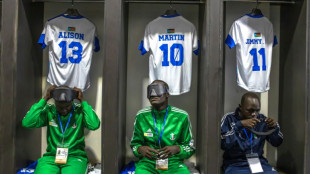 South Sudan's blind football team dreams of Paralympic glory
South Sudan's blind football team dreams of Paralympic glory
-
US says 4 killed in new strike on alleged Pacific drug boat
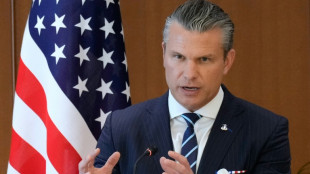
-
 What we do and don't know about Rio's deadly police raid
What we do and don't know about Rio's deadly police raid
-
'They slit my son's throat' says mother of teen killed in Rio police raid

-
 Arteta hails 'special' Dowman after 15-year-old makes historic Arsenal start
Arteta hails 'special' Dowman after 15-year-old makes historic Arsenal start
-
Google parent Alphabet posts first $100 bn quarter as AI fuels growth
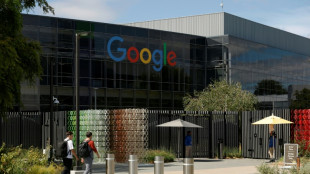
-
 Underwater 'human habitat' aims to allow researchers to make weeklong dives
Underwater 'human habitat' aims to allow researchers to make weeklong dives
-
Maresca slams Delap for 'stupid' red card in Chelsea win at Wolves

-
 'Non-interventionist' Trump flexes muscles in Latin America
'Non-interventionist' Trump flexes muscles in Latin America
-
Slot defends League Cup selection despite not meeting 'Liverpool standards'

-
 'Poor' PSG retain Ligue 1 lead despite stalemate and Doue injury
'Poor' PSG retain Ligue 1 lead despite stalemate and Doue injury
-
Liverpool crisis mounts after League Cup exit against Palace

-
 Kane scores twice as Bayern set European wins record
Kane scores twice as Bayern set European wins record
-
Radio Free Asia suspends operations after Trump cuts and shutdown

-
 Meta shares sink as $16 bn US tax charge tanks profit
Meta shares sink as $16 bn US tax charge tanks profit
-
Dollar rises after Fed chair says December rate cut not a given
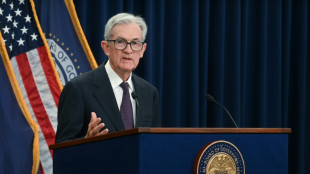
-
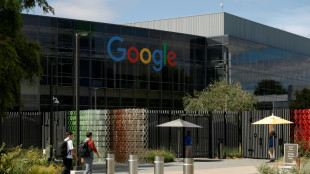 Google parent Alphabet posts first $100 bn quarter as AI drives growth
Google parent Alphabet posts first $100 bn quarter as AI drives growth
-
Rob Jetten: ex-athlete setting the pace in Dutch politics


Why has a Chinese city's lockdown sent aluminium prices surging?
The Covid lockdown this week of a relatively unknown Chinese city sent global prices of aluminium rocketing to a 14-year high.
Why did the outbreak in Baise spark fears around the world about the key metal?
- Where is Baise? -
Located near the border with Vietnam, Baise is nicknamed the "aluminium capital of southern China".
Home to around 3.5 million people, Baise is a hub for aluminium mining and production.
It produces about 2.2 million tonnes of the commodity per year -- more than 80 percent of the output in the resource-rich Guangxi region.
Guangxi is China's main alumina-exporting region, shipping out around 500,000 tonnes of the aluminium component per month.
China is the world's biggest producer of aluminium, a crucial component in major industries including automobiles, construction and consumer goods.
- Why was Baise locked down? -
At just under 190 cases, the Baise coronavirus outbreak is tiny compared with caseloads in other parts of the world.
China, however, has a zero Covid strategy, using strict, targeted lockdowns, travel restrictions and mass testing to eliminate infections.
Baise was locked down Monday, leaving most of its residents under home confinement and others unable to leave rural counties and townships under the city's jurisdiction.
The national Covid strategy has helped maintain some economic growth during the pandemic, but its enforcement has caused frequent disruptions at key manufacturing and shipping hubs in recent months.
- How did it impact aluminium? -
Baise's local industry association said Tuesday that while aluminium production was largely at normal levels, the transportation of ingots and raw materials was seriously impacted by travel restrictions during the lockdown.
That in turn sparked fears about supply that cascaded through China and then around the world.
"The sudden outbreak in our city has exacerbated market expectations of hindered logistics flows, as well as expectations of phased supply tightening caused by an output drop," the association said.
A major industrial park in Baise containing several factories has been sealed, affecting the movement of workers, raw materials and aluminium ingots, it added.
On Wednesday, some aluminium smelters in southwest China resumed production, monitor Shanghai Metals Market (SMM) reported.
But some refineries of the component alumina in Guangxi have stopped production because of the outbreak, it said.
Huayin Aluminium, a major smelter in Baise, slashed production capacity by about 1.2 million tonnes owing to transportation blockages, according to Chinese commodity research firm Antaike.
- Was Baise the only driver of the price surge? -
The global aluminium price surge was sparked by the Baise lockdown but other major factors were already at play too, analysts said.
The timing of the lockdown also played a part.
China's domestic aluminium shortage had already been exacerbated by the Lunar New Year holidays, during which most factories nationwide ground to a halt or reduced output.
The break was followed by the Baise lockdown, meaning inventories could not be replenished normally.
Prices of aluminium were already expected to rise after the holidays, which concluded Monday, because of low domestic inventories and solid demand from manufacturers, according to the SMM.
Furthermore, Antaike said Tuesday that alumina industries in three other provinces have also reduced production.
- What about the rest of the world? -
The global aluminium market is already facing a large production deficit this year, with demand outstripping supply as the world economy recovers from the pandemic.
Further, aluminium production is linked to the stability of other supplies.
Analysts said the ongoing Russia-Ukraine crisis had caused widespread fear that Europe's gas supply from major producer Russia will be hit if the situation escalates.
US President Joe Biden made a categorical vow Monday at a meeting with Germany's Chancellor Olaf Scholz that the massive Nord Stream 2 gas pipeline from Russia to Europe will "end" if Moscow invades Ukraine.
"Aluminium production requires significant amounts of energy and gas is the primary fuel source. Fears that Nord Stream 2 could be halted are pushing prices higher," City Index analyst Fiona Cincotta told AFP.
"Secondly, Russia is a key producer of aluminium... Threats of sanction from the West (are) also driving up prices."
T.Bondarenko--BTB




